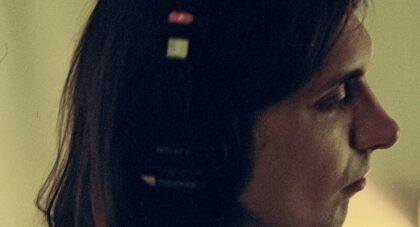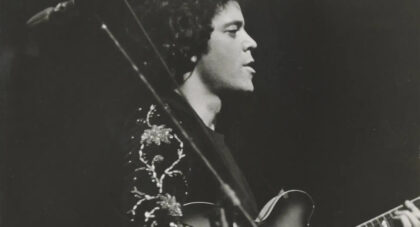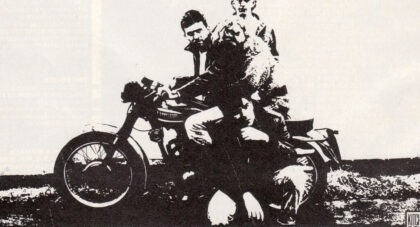In late 1967 at a Count Basie concert at the famed Fillmore Auditorium two brothers in the groove were introduced by a stranger who quickly disappeared into the technicolor ethers forever altering the course of modern music. Mickey Hart and his new rhythm devil brethren Billy Kreutzmann left the show that night with sticks in hand as they ‘played’ the streets of San Francisco until dawn — giving new meaning to ‘the world is your playground’. Hart joined the Grateful Dead officially the following month establishing the band as one of the first with a two drummer back beat as Billy and Mickey physically locked arms and conjured up the spirits of yore with a pummeling mixture of primal tribal rhythms meets big band syncopation. As they say the rest is history and Mickey’s is one of many paths.
We were fortunate to spend a brisk November afternoon in Boston with Mickey as he discussed his new politically charged album RAMU and his history within The Grateful Dead along with his philosophies on life, music and everything in between. Like Jerry Garcia’s notable 1972 ‘Stoned Sunday’ rap with author Charles Reich we let the conversation dictate it’s own course much like Mickey himself who thrives on improvisation and the unknown. We hope you enjoy.
RAMU is out now on Universal Music. words / d.norsen
Aquarium Drunkard: RAMU is one of the most political things I’ve heard from a Grateful Dead member in a very long time. Did you go into this album wanting to do something politically charged?
Mickey Hart: Yeah, for sure. That’s absolutely right. The thing is, the music is supposed to mirror life. It’s also a miniature of life and what happens in the cosmos and in the universe in general. That’s what music is: it’s a miniature of life and the movement in life. Specifically, the social movement and what Mr. Trump represents is what I call “crimes against the groove and the rhythm.” He’s creating new bad rhythms as opposed to positive, life-giving rhythms. The rhythm he’s giving off is disruptive. I see things in rhythmic terms. There hasn’t been any great protest songs that you can really put your teeth into.
AD: I think we’re still early, too. We’ll see what comes out in the next couple of years with other artists. There will be more for sure.
Mickey Hart: They’ll also be disguised in many forms. It’s the way you scream, the way a musician talks to the world and reflects what’s going on not just in his mind, but in the mind of the world. I think that’s an important part of music.
But did I set out to do it? You bet. The idea is that coming up with that kind of protests, the music has to uplift. It has to be entertaining. It has to tell a story — it’s a story thing. Even though the stories are tragic, there has to be some humor in order to bridge the gap between political unrest and entertainment and being uplifting. Robert Hunter wrote these songs not necessarily with Mr. Trump in mind.
The thing about Hunter’s songs is that they’re poetic. The things that he writes years before come into view at different times. They’re very powerful statements, so I took advantage of that. Robert wrote these great songs and they just fit perfectly, so that made my resolve even stronger to make a record that has a political and life angle to it. Music is supposed to shed light on darkness and highlight not only the good but the bad. Music is all about involving people with life. We live in this world, whether we like it or not.
Only the good shit. Aquarium Drunkard is powered by its patrons. Keep the servers humming and help us continue doing it by pledging your support.
To continue reading, become a member or log in.


